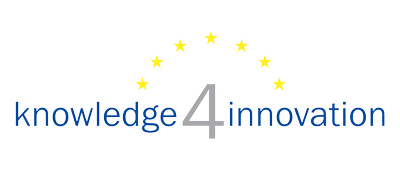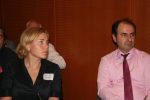june, 2018

Time
(Tuesday) 19:30 - 22:00
Location
Members' Salon, European Parliament, Brussels
Event Details
FP9 is
Event Details
FP9 is coming and we are rapidly closing in quickly on decision time, how should the new FP be shaped, and how will it improve the impacts on innovation and contribute to growth in the EU.
Many elements have been under debate in the running up to FP9, and the Commission is considering several options to increase measurable impact. Mission Orientation is one of the options. The Lamy report already hinted in this direction, supported by a growing body of academic research supporting the implementation of such policies.
Designing a new FP for research at EU level is highly complex, and mission orientation could provide answers to the current challenges, not necessarily by reducing complexities, but by providing better answers to todays challenges.
The Mazzucato report and the JIIP studies have provided the political and detailed policy case. It is clear that the new FP will not be a radical shift from the current practice but rather build on the current work and a mission orientation will bring the societal challenges to a more focussed and result driven stage. The new FP will still contain three pillars and missions will be most prominent in the follow up to the societal challenges pillar. But for missions to be most effective, it should be a comprehensive strategy, also aligning policies and actions in the ERC and EIC pillars. Probably a phased implementation, to gain experience and establish good practice is the best way forward.
The mission-oriented approach is not only attractive for policy makers and politicians, also the beneficiaries, be they from industry or research, are strongly in favour of the new direction, as the JIIP study points out. Much is, however, still unclear regarding the definition of missions and how they could be implemented. The studies show that there is no one size fits all, and that the processes in defining, managing and implementing missions are to a large extent driven by the mission context.
The debate will focus on the characteristics of mission oriented policies, their differences and requirements, on where top down or bottom up approaches are most suitable, on the use of instruments for implementation, the way missions should be defined involving all stakeholders including citizens, the management and mission ownership, benefits and draw backs of the approach, the alignment (synergies) with national, regional and urban R&I policies and programmes and also intended side effects, such as better leveraging the S3 strategies and reducing the brain drain in especially the countries with weaker R&I systems.
Host
Henna Virkkunen, Member of the European Parliament (MEP)
Speakers for this event
-
Niemelä, Ilkka
Niemelä, Ilkka
Rector of the Aalto University
Rector of the Aalto University
-
Robbert Fisher
Robbert Fisher
President, Knowledge4Innovation
Robbert Fisher specializes in strategy and policy in the fields of R&D, technology transfer and innovation in general. His key focus is on ICT policy. Since 1st January 2020 he is principal associate investigator at the University de las Campinas in Sao Paolo Brazil, where he focuses on the further development of Big Data and AI for policy analysis, development and monitoring. Robbert is on the board of several start up companies, a trusted expert for the European Commission in the field of big data and AI, and since 2017 the president of K4I. From 2011 to 2019 Robbert was the managing director of the Joint Institute for Innovation Policy, a Brussels based think tank of four renowned RTO’s (TNO, VTT, Tecanalia and Joanneum Research). Prior to that he has founded two companies, from 1989 until 2000 he was a senior manager with PricewaterhouseCoopers. From 1991-1995 Robbert was seconded as an expert to the European Commission DG XIII (now DG CONNECT) in Luxembourg. Robbert received a Master’s degree Law, Leiden University, the Netherlands with special subjects Intellectual property, Information Systems and Business economics. He holds degrees in marketing and public relations. In addition, he is an alumnus of the PwC International Management Development Programme, and has followed executive courses at Darden Business School and Oxford Said Business School.
President, Knowledge4Innovation
-
Stierna, Johan
Stierna, Johan
Team leader RISE Secretariat, DG RTD
Team leader RISE Secretariat, DG RTD






